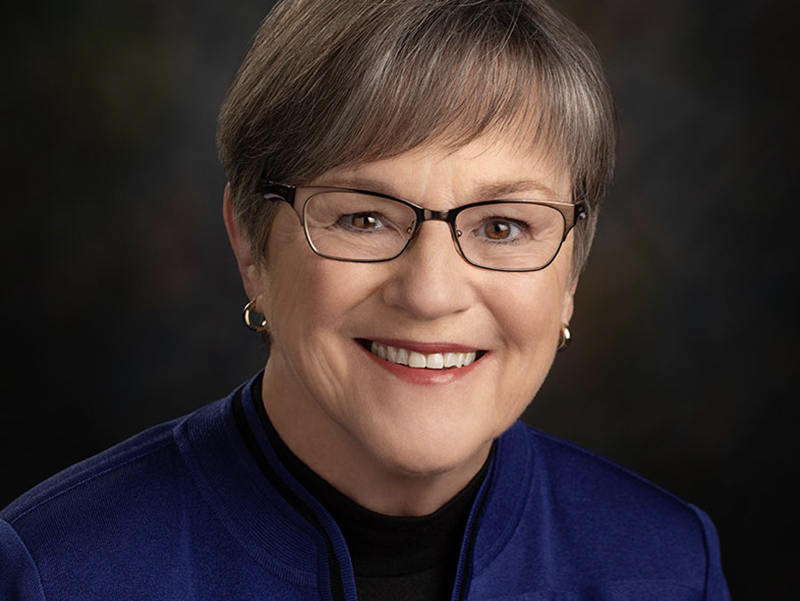Ohio Introduces Its Own “Don’t Say Gay” Bill
Bill would ban LGBTQ discussions and books, and lessons and materials dealing with other "divisive concepts," from school classrooms.

Lawmakers in Ohio have introduced their own version of a “parental rights” measure that prohibits classroom discussion of sexual orientation and gender identity before fourth grade, similar to one that recently passed in Florida.
Dubbed the “Don’t Say Gay” law by critics, the Florida law has since been challenged in federal court by a group of students and LGBTQ parents who claim they or their children are already being negatively impacted by the law.
Critics claim that the law, in being enforced, will invariably impact older students and result in bans on some LGBTQ-related speech or content — imposed by individual teachers — in order to avoid being sued by parents who feel such topics should not be broached in classrooms.
Ohio’s version of the law, introduced by State Rep. Jean Schmidt (R-Loveland) and Mike Loychik (R-Cortland), would ban discussion, curriculum, or materials touching on sexual orientation or gender identity in kindergarten through third grade, and would require any LGBTQ-related content be “age-appropriate” in older grades.
The bill allows parents to sue if they believe their children have been exposed to “inappropriate” content. Educators who violate the law could face suspension, and schools found in violation of the law could lose state funding, depending on the severity of the infraction, according to The Columbus Dispatch.
The bill also bans teachers from broaching other “divisive concepts” such as the 1619 Project, so-called “critical race theory,” intersectional theory, inherited racial guilt, diversity, equity, and inclusion learning outcomes, or “any other concept that the state board of education defines as divisive or inherently racist,” such as lessons or materials that portray America as an inherently racist nation or that are critical of the country’s past.
‘”The classroom is a place that seeks answers for our children without political activism,” Schmidt said in a statement. “Parents deserve and should be provided a say in what is taught to their children in schools.”
But Ohio State Board of Education Member Christina Collins said some of the bill’s provisions are highly ambiguous, and ignore the fact that school districts already have policies in place around the teaching of controversial issues.
While Schmidt and Loychik have avoided interviews with the press, Collins believes that Ohio’s decision to target “instructional materials” as well as classroom discussions, is likely to result in removing books with LGBTQ characters or content from elementary school libraries.
The Ohio Education Association and the Ohio Federation of Teachers both oppose the legislation.
“It’s really going to put both teachers and parents in a really tough spot,” OEA President Scott DiMauro said of the bill. For instance, he asked, could a teacher could be suspended or fired for allowing a student with same-sex parents to create a family tree or a drawing of their family, based on another student’s parents’ personal objections to homosexuality?
“Fundamentally these bills are cynical attempts to use race, and now sexual orientation and gender identity, as wedge issues to cause division and sow conflict and ultimately to score cheap political points,” DiMauro said.
But Aaron Baer, the president of the Center for Christian Virtue, is supportive of the law, arguing that children should not be exposed to “sexual” content at young ages and that parents should be guiding any discussions regarding controversial issues.
He told the Dispatch he didn’t believe the bill would block the child of gay parents from creating a family tree, saying that its intention is to block teachers with “different ideologies” from “pushing” their beliefs on children.
The bill could get some pushback from the business community, which may be worried about attracting workers to a state whose population has been steadily declining over the past few decades.
Steve Stivers, the president and CEO of the Ohio Chamber of Commerce, said the organization is “concerned that some of the language in this bill may impede Ohio’s ability to lure the best and brightest minds to fill these openings and put down roots in the Buckeye State.”
However, he also said he trusted the legislative process would allow everyone “a chance to have their voice heard,” according to the Cleveland Plain Dealer.
“Ohio needs to be a welcoming place for all,” he said. “We should focus on ways to cultivate and harness the talents of Ohioans, while also attracting out-of-state workers to relocate here.”
Both Gov. Mike DeWine, who faces two conservative primary opponents in his re-election bid, and Ohio House Speaker Bob Cupp have sidestepped questions about the bill when asked by reporters about specific provisions.
Cynthia Peoples, of Honesty for Ohio Education, a coalition opposing all “divisive concepts” legislation in the state, said the intent of the bill — and supporters’ attempts to label conversations about LGBTQ identity as “grooming” — is to “push adults and students back into the closet.”
“We don’t believe honest discussion about identity and allowing children to bring their authentic selves into the classroom is sexualizing children,” she said. “Normalizing these conversations is not grooming. That’s a gross perversion.”
Support Metro Weekly’s Journalism
These are challenging times for news organizations. And yet it’s crucial we stay active and provide vital resources and information to both our local readers and the world. So won’t you please take a moment and consider supporting Metro Weekly with a membership? For as little as $5 a month, you can help ensure Metro Weekly magazine and MetroWeekly.com remain free, viable resources as we provide the best, most diverse, culturally-resonant LGBTQ coverage in both the D.C. region and around the world. Memberships come with exclusive perks and discounts, your own personal digital delivery of each week’s magazine (and an archive), access to our Member's Lounge when it launches this fall, and exclusive members-only items like Metro Weekly Membership Mugs and Tote Bags! Check out all our membership levels here and please join us today!






















